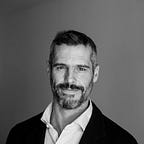The Myth of Being a Burden
There is a scary little word that haunts patients, and that is the idea of becoming a “burden.”
By some definition we are by nature burdens to one another. I say that to be honest. Caregiving takes a lot of energy and time. I want to normalize this feeling of being a burden and try to shift and reframe the way we think about the word “burden.”
We get to be a burden to one another, we get to need one another and rely on one another. These are some of the most beautiful things you’ll see happen in family dynamics. Parents take care of the kids, the kids grow up and take care of the parents at later stages of life. Adult children can exercise what those parents taught them about caregiving and the elders can be on the receiving end in a role-reversal. That is the nature of being human; we need each other.
There’s no one who doesn’t need something from somebody. Being a burden is simply the definition of being human and being alive.
Oftentimes the patient’s needs are clear, but the caregiver is suffering in more complex or psychological ways. It’s common that in palliative care and hospice, the caregiver ends up being the patient in their need for emotional support. This support can look like hiring a home health aide or calling in neighbors. Sometimes your job as a caregiver is to bring in more care to help yourself and there’s no shame in that. It’s just the nature of life these days.
It’s okay to ask for help. You need to ask for help.
The Myth of Independence
In palliative care there is a sense that giving up independence signals to the person that there’s suddenly a more tenuous relationship between life and death. You’re losing some of your ability to take care of yourself. This is no minor thing, but I think that there may be some patient education we need to do.
“Hospice,” sets off bells and whistles, big time. Receiving hospice sends the message to the patient that they’re dying. That message has really stuck whether it’s true or not. Messaging is really important because people flourish more and thrive more when they receive palliative care, but I think language is critical in how we approach this topic.
The ideas of independence and autonomy are an indictment of society. Americans are extra fetishized around that notion. However, independence doesn’t exist. There’s no such thing as someone who doesn’t need anyone. It is a glorious and normal part of life, how much we need one another. There’s no shame around being disabled. That is the most natural and normal thing ever. And yet, we live in a society that still implicitly and explicitly denounces that as a lesser state.
We have some work to do at the structural level, at the level of language and also on the level of policy.
